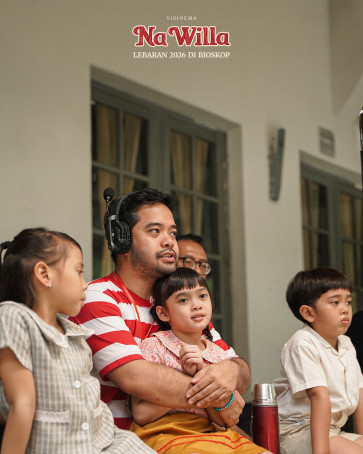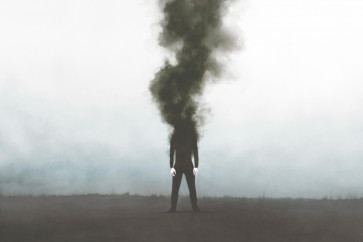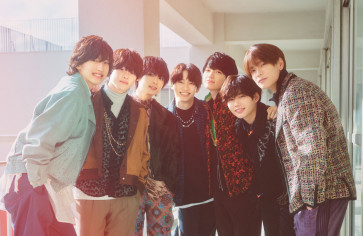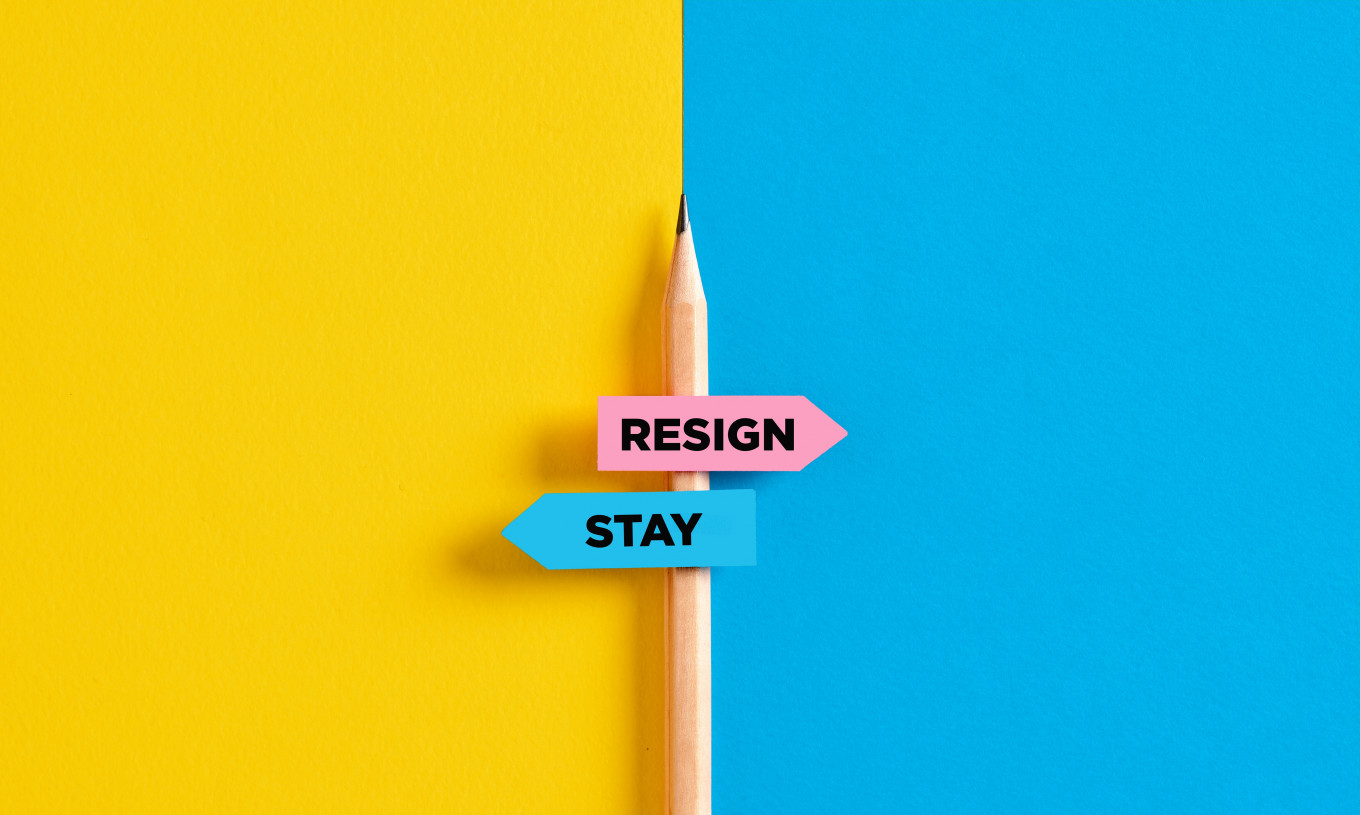Giving up is a privilege. I know that sounds confusing, as if I’m romanticizing surrender. I am not.
We have been lionizing resilience as if the capacity to endure was an ethical achievement rather than a condition often imposed by circumstance.
Yet the ability to stop, to walk away from a job, a relationship or a plan that no longer works, depends less on moral fiber than on material security and social safety: savings, health insurance, a place to sleep, someone to call when the rent is late.
For many, “not giving up” is not a matter of courage but necessity.
In Indonesia, we praise people who are tahan banting, or psychologically resilient, and though there is tenderness in that admiration, it can also be quietly cruel when endurance becomes a moral doctrine.
Without a cushion, endurance becomes a cage. It is easier to tell someone to “keep going” than to change the conditions that make the going unbearable.

Thank you!
For signing up to our newsletter.
Please check your email for your newsletter subscription.
This issue is worth discussing, because how society treats the act of quitting shapes how we understand hope.
The thin line between hope and desperation
Hope is commonly imagined as belief in a better outcome that makes persistent striving feel worth it.
But it has a malignant cousin: desperation, which fuels struggle because retreat feels impossible. Desperation wears the guise of hope when there is no alternative. The difference between the two is hard to spot.
Hope, which is generative, future-oriented and patient, flourishes best when people can afford to take risks, to experiment and to recover from failure. It is simple math: If I fail, I will not fall through the floor.
Desperation, by contrast, is hope’s mimic. It keeps people tethered to harmful work, abusive relationships and degrading institutions because leaving entails catastrophic costs.
Our society has mistaken fear of quitting for perseverance. We call it hope because we do not always know how to identify exhaustion. Sometimes, all it takes is a small possibility to reveal that what looked like courage was really persistence born of necessity. Once the math changes, the feeling does too.
This is not a semantic game. We have cultural reasons for resisting this diagnosis.
“Persevere” is tidy advice; it flatters the national narratives of grit and individual responsibility. “Quit” is messy; it implies limits, failure and inadequacy. Political rhetoric and media narratives reinforce this dichotomy, celebrating those who refuse to yield and idolizing overnight successes, often omitting the invisible scaffolding.
In other words, endurance is framed as virtue and quitting as vice. In doing so, it obscures the structural inequities that assign one’s place and muffles calls for collective solutions: better unemployment protection, universal health care and gender-responsive labor policies.
Why quitting is a right
When quitting is framed as a failure, supporting policies that allow people to leave without collapsing becomes politically costly.
This silence protects institutions that profit from immobility. Employers gain when vulnerable workers cannot leave. Abusive partners benefit when victims feel powerless. Public institutions remain unchallenged when citizens have no realistic alternatives. The result is a system that is more stable for those in power and more precarious for everyone else.
The right to quit is also a civic issue. Democracy rests on the premise that citizens make meaningful choices, but choices are an illusion when people are caught between a rock and a hard place. A democracy that punishes retreat mistakes endurance for consent. People cannot meaningfully participate in a system they cannot afford to refuse.
The capacity to exit unjust systems, whether it is a job, an institution or even a civic role, without ruin is a political right. To say no to an exploitative system without being destroyed is itself a form of political speech.
(Shutterstock)
We see this plainly in our everyday lives. Many workers survive without formal contracts, health insurance or paid leave. They stay in a job not because it is good, but because it is all that stands between them and starvation. Informal labor, precarious gig work and patchwork employment are not just economic conditions; they are mechanisms that limit the range of possible lives.
When daily subsistence is fragile, the luxury of pivoting disappears. People cannot take creative risks such as starting a small business, returning to school or leaving a harmful relationship when next month’s rent is an unsteady bet.
Consider a cashier in a small Jakarta mall who dreams of opening a café, but is surviving each month from paycheck to paycheck. One sick day could mean unpaid bills. One delayed rent could lead to eviction. His “stubborn perseverance” is in fact a survival strategy dictated by circumstance. In this situation, quitting is socially impossible.
Making hope possible for all
If we want true hope, we should call for policies that reduce the costs of quitting: labor protections that enforce minimum wages, prevent predatory contracts and guarantee paid leave; social insurance that covers health care, maternity and paternity leave and unemployment; and programs that support vocational retraining, seed funding for small businesses and the rights of gig workers.
These are not comforts. They are infrastructure for possibility because hope needs scaffolding.
Policies will not fully change the social construct of morality, however.
We also need a cultural shift, a loosening of the moral straitjacket that equates quitting with failure.
This begins at home, such as in how we talk about friends who choose different paths, referring to them not as cowards but people who are rearranging their lives to survive and thrive. It extends into workplaces, where leaving should not be framed as disloyalty, and into public discourse, where anecdotes of grit should not become universal moral rules.
There is particular cruelty in making moral lessons out of structural injustice.
When we celebrate the individual who “never gives up”, we obscure the possibility that others who did might have paid a price we would hesitate to ask of anyone. We make endurance a societal ideal and capitulation a personal flaw, while the real moral question is whether society is structured in such a way that the disadvantaged must risk everything to change their lives.
The freedom to hope and quit
Redistributing hope looks a lot like redistributing risk.
It is a political choice to make quitting safer and to widen the space for imagination. It is also an ethical choice to stop valorizing suffering and start valuing the conditions that make flourishing possible.
Perhaps the measure of a humane society is not how long people can endure, but how safely they can stop.
I don’t romanticize quitting. Quitting can stem from cowardice, rashness or self-interest. It can close doors that might have led to growth.
The question that matters is not whether quitting is sometimes wrong, but why quitting is often unaffordable. When escape is impossible, when the only alternatives are staying and collapsing, we have a social problem, not a moral one.
If we care about humane polity, the right to stop should be for everyone. That means investing in public goods and norms that decouple basic security from endurance. It means remembering that choices are only meaningful when they are materially possible.
When more people can afford to stop, to change and to refuse harm, what we call hope will be truer; less coerced and more chosen.
Lutfiya balances government work and campus life, often escaping into words when reality gets too loud, hoping those words will one day become a book.

























